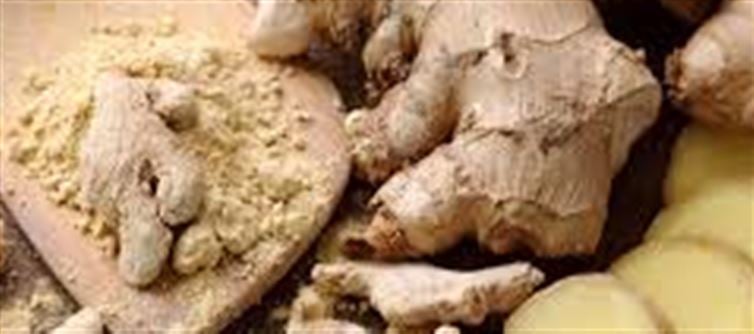
Heart disease remains one of the leading causes of death worldwide, and with the increasing prevalence of conditions like heart attacks, cardiac arrests, and arterial blockages, more people are seeking natural ways to protect their heart health. Surprisingly, a common kitchen ingredient like ginger has emerged as a powerful ally in preventing heart attacks. But how can just three grams of ginger daily make a difference? Let’s explore the science behind it.
1. The Heart-Healthy Benefits of Ginger
Ginger (Zingiber officinale) has been used for centuries in traditional medicine for its therapeutic properties. It’s packed with bioactive compounds like gingerol and shogaol that contribute to its health benefits, particularly in the context of heart health. Studies suggest that a small daily dose of ginger can help reduce the risk of heart disease in multiple ways.
2. How ginger Can Lower Blood Pressure
High blood pressure is a major risk factor for heart disease, and ginger has been shown to have a mild but effective effect on lowering blood pressure. A study published in the American Journal of Hypertension found that ginger can relax the blood vessels, improving blood circulation and helping to reduce hypertension.
· Impact: Consuming just a small amount of ginger daily can assist in controlling blood pressure, which is vital in preventing heart attacks.
3. Ginger’s Role in Reducing Cholesterol
Another way ginger helps protect your heart is by reducing cholesterol levels, especially LDL (low-density lipoprotein) or "bad cholesterol". Elevated levels of LDL cholesterol are linked to the buildup of plaque in the arteries, increasing the risk of atherosclerosis (a condition that can lead to heart attacks).
· The Science: Research indicates that ginger helps lower LDL cholesterol and triglyceride levels while increasing HDL (high-density lipoprotein) or "good cholesterol," promoting a healthier lipid profile.
4. Anti-Inflammatory Properties to Combat Arterial Blockages
Inflammation in the arteries plays a central role in the development of arterial blockages that can lead to heart attacks. ginger is known for its powerful anti-inflammatory properties. It helps reduce inflammation in the blood vessels and tissues, making it harder for plaque to build up in the arteries.
· Scientific Evidence: A study in the Journal of Medicinal Food showed that ginger supplementation reduces markers of inflammation in the body, which is crucial for maintaining clear, healthy blood vessels.
5. Blood Thinning Effects to Prevent Clots
Blood clots can lead to cardiac events like heart attacks and strokes, especially when they block the flow of oxygen-rich blood to the heart. ginger has natural blood-thinning properties, which can help prevent the formation of blood clots. It works similarly to certain blood-thinning medications but in a natural form.
· Mechanism: ginger inhibits the platelet aggregation (clumping together), which is a critical factor in the formation of blood clots. As a result, it reduces the chances of clots blocking the heart's arteries.
6. antioxidants in ginger Fight Free Radicals
The antioxidants in ginger help protect the body from oxidative stress, which is a condition caused by an imbalance between free radicals and antioxidants. Oxidative stress can damage blood vessels and heart tissues, contributing to the development of heart disease. By neutralizing free radicals, ginger helps protect the heart and blood vessels from damage.
· Why This Matters: Regular consumption of ginger aids in protecting the heart against damage from oxidative stress and helps maintain the integrity of blood vessels, thereby reducing the risk of heart disease.
7. How to Include ginger in Your Diet
Incorporating ginger into your daily routine is simple. Here are some easy ways to add three grams of ginger to your diet:
· Ginger Tea: A common method is to brew a cup of ginger tea by steeping fresh ginger slices in hot water.
· Smoothies: Add a small piece of ginger to your daily smoothie for an extra antioxidant boost.
· Cooking: Grate or chop fresh ginger and add it to your dishes, such as soups, stir-fries, and curries.
· Supplements: ginger supplements are available, though it’s best to consult with a healthcare provider before adding them to your routine.
8. Important Considerations and Side Effects
While ginger is generally safe for most people, consuming it in excess (more than 4 grams a day) can lead to side effects like heartburn or upset stomach. pregnant women or individuals on blood-thinning medications should consult a healthcare provider before using ginger in large amounts.
Conclusion: The Power of a Simple Spice
Ginger is more than just a flavorful spice — it’s a heart-healthy powerhouse. By adding just three grams of ginger to your daily routine, you can help lower your risk of heart attacks through its effects on blood pressure, cholesterol levels, inflammation, and blood clotting. While it’s not a replacement for medical treatment, incorporating ginger into a balanced, healthy lifestyle can be a simple and natural way to boost your heart health and reduce your risk of heart disease.
Disclaimer:
The views and opinions expressed in this article are those of the author and do not necessarily reflect the official policy or position of any agency, organization, employer, or company. All information provided is for general informational purposes only. While every effort has been made to ensure accuracy, we make no representations or warranties of any kind, express or implied, about the completeness, reliability, or suitability of the information contained herein. Readers are advised to verify facts and seek professional advice where necessary. Any reliance placed on such information is strictly at the reader’s own risk..jpg)




 click and follow Indiaherald WhatsApp channel
click and follow Indiaherald WhatsApp channel